

Life Is a Miracle: An Essay Against Modern Superstition Paperback – May 15, 2001
by Wendell Berry (Author)
3.8 out of 5 stars 41 customer reviews
“[A] scathing assessment . . . Berry shows that Wilson's much-celebrated, controversial pleas in Consilience to unify all branches of knowledge is nothing more than a fatuous subordination of religion, art, and everything else that is good to science . . . Berry is one of the most perceptive critics of American society writing today.” ―The Washington Post
“I am tempted to say he understands [Consilience] better than Wilson himself . . . A new emancipation proclamation in which he speaks again and again about how to defy the tyranny of scientific materialism.” ―The Christian Science Monitor
In Life Is a Miracle, the devotion of science to the quantitative and reductionist world is measured against the mysterious, qualitative suggestions of religion and art. Berry sees life as the collision of these separate forces, but without all three in the mix we are left at sea in the world.
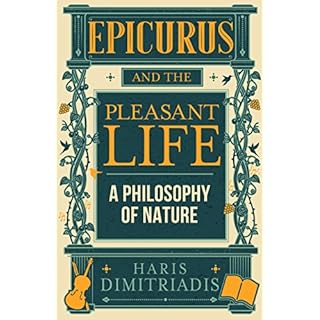
EPICURUS and THE PLEASANT LIFE: A Philosophy of Nature
Haris Dimitriadis
Discover now the teachings of Epicurus reinforced by neuroscience, psychology and even astrophysics to find what makes you happy and how to get there.
29
Kindle Edition
$5.99
Next page
Ad feedback
Customers who bought this item also bought
Page 1 of 20Page 1 of 20This shopping feature will continue to load items. In order to navigate out of this carousel please use your heading shortcut key to navigate to the next or previous heading.
Back
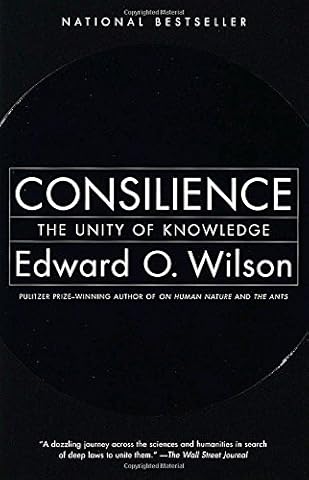
Consilience: The Unity of Knowledge
Edward Osborne Wilson
4.2 out of 5 stars 164
Paperback
$13.56 Prime
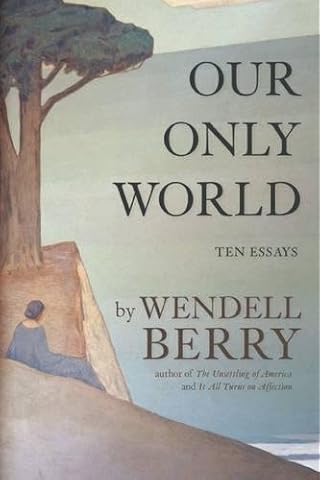
Our Only World: Ten Essays
Wendell Berry
4.6 out of 5 stars 56
Paperback
$11.52 Prime
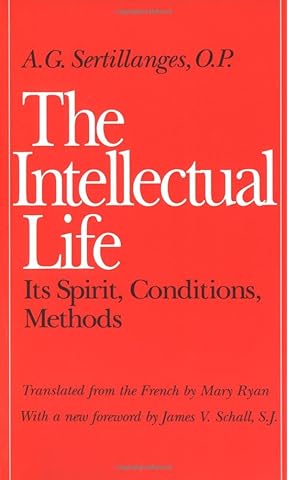
The Intellectual Life: Its Spirit, Conditions, Methods
OP A. G. Sertillanges
4.5 out of 5 stars 35
Paperback
$18.52 Prime

Encyclical on Climate Change and Inequality: On Care for Our Common…
Pope Francis
4.3 out of 5 stars 22
Paperback
$8.95 Prime
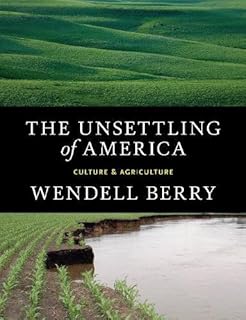
The Unsettling of America: Culture & Agriculture
Wendell Berry
4.8 out of 5 stars 32
Paperback
$11.99 Prime
Next
Special offers and product promotions
Your cost could be $0.49 instead of $10.49! Get $10.00 off instantly as a gift card upon approval for the Amazon.com Store Card. Learn more.
Editorial Reviews
Amazon.com Review
As a poet, novelist, and farmer, Wendell Berry has worked and written in favor of tried and tested ways, rejecting the notion that the modern is always to be preferred over the old. Technology may have its uses, he has insisted in books like The Gift of Good Land, but what matters more is the crafting of sound human communities and of self-reliant living. Religious faith lies at the heart of Berry's unapologetically old-fashioned program. Faith, which supposes that life is full of unpredictable mysteries, stands against much of modern science, an opposition that Berry explores in Life Is a Miracle. Taking particular issue with entomologist E.O. Wilson's recent book, Consilience, which maintains the supremacy of scientific explanation over religious conjecture and supposes that science will one day be able to answer every question about the hows and whys of life, Berry revisits C.P. Snow's "two cultures" thesis to observe that science and religion address different kinds of necessary questions. "Science cannot replace art or religion," he writes, "for the same reason that you cannot loosen a nut with a saw or cut a board in two with a wrench." Against science's "false specification and pretentious exactitude," Berry notes quietly that the more he observes his own little corner of the planet, a small Kentucky farm, the less patient he is with reductionist, materialist explanations of the way things work--for here, and everywhere, "life ... is unique, given to the world minute by minute, only once, never to be repeated."
Berry's slender essay offers a thoughtful repudiation of an increasingly technological--and, some would say, soulless--culture. --Gregory McNamee --This text refers to an out of print or unavailable edition of this title.
From Publishers Weekly
Living for almost 40 years on a family farm in Kentucky has led Berry to place a high value on local knowledge born of a long and affectionate engagement of the intellect and imagination with a particular place. To readers of his poems, novels (Memory of Old Jack, etc.) and essays (The Unsettling of America, etc.), it will be no surprise that in his latest essay collection, he argues cogently and passionately against the proposition E.O. Wilson puts forth in Consilience, that our best hope for preserving the biosphere lies in linking facts and fact-based theory across disciplines under the hegemony of the natural sciences. Though a conservationist, like Wilson, Berry strongly believes that the materialist prescription for what ails usAecologically, culturally and spirituallyAwill simply bind us more tightly to the often destructive, profit-driven triad of science, technology and industry. It will also move us further away, avers Berry, from what he sees as the sense of propriety that calls on us to base our thoughts and actions on our inescapable interdependency with the planet's other life forms. Berry also opposes the belief underlying Consilience, that scientific analysis can ultimately explain everything: "to reduce the mystery and miracle of life to something that can be figured out is inevitably to enslave it, make property of it and put it up for sale." In opposition to this view, Berry proposes evaluating our behavior and work on how they affect "the health and durability of human and natural communities." To do that, he contends, we must go beyond Wilson's empirical knowledge to imaginative knowledgeAto knowing things "intimately, particularly, precisely, gratefully, reverently, and with affection." Agent, the Spieler Agency.
Copyright 2000 Reed Business Information, Inc. --This text refers to an out of print or unavailable edition of this title.See all Editorial Reviews
Product details
Paperback: 176 pages
Publisher: Counterpoint; 32391st edition (May 2001)
Language: English
Follow
Biography
Wendell E. Berry (born August 5, 1934) is an American novelist, poet, environmental activist, cultural critic, and farmer. A prolific author, he has written many novels, short stories, poems, and essays. He is an elected member of the Fellowship of Southern Writers, a recipient of The National Humanities Medal, and the Jefferson Lecturer for 2012. He is also a 2013 Fellow of The American Academy of Arts and Sciences. Berry was named the recipient of the 2013 Richard C. Holbrooke Distinguished Achievement Award. On January 28, 2015, he became the first living writer to be ushered into the Kentucky Writers Hall of Fame.
Bio from Wikipedia, the free encyclopedia. Photo by Guy Mendes (Guy Mendes) [CC BY-SA 3.0 (http://creativecommons.org/licenses/by-sa/3.0)], via Wikimedia Commons.-
-------------
0 out of 5 stars
society ended and no one noticed
ByS. Nachaloon July 7, 2016
Format: Paperback|Verified Purchase
“We are not getting something for nothing. We are getting nothing for everything,” the epigraph with which Berry opens Life is a Miracle, is apt and concise. Modern society appears miraculous, the product of man's industry and ingenuity. It looks (and is advertised largely as) a kind of perpetual motion machine, powered by little other than human inventiveness. Attentive observers have noticed that appearances are, as usual, deceptive: we are living on fossil fuels, energy created over eons by geological processes, and in a matter of decades, we've used up more than half of what's available. But there are problems even greater than the depletion of our main energy sources, destroying our ability to perpetuate our society and culture without much notice from anyone. We (and many other animals) have been passing our knowledge and ways of life the old fashioned way (and the only way) from parent to child as long as we've been on this planet without giving it a thought, but it appears that this simple and irreducible aspect of our species existence can be interrupted. When this happens locally, tribes and cultures die. It's not clear whether it is possible for this to happen globally, but it seems that this is the direction we are heading. Globalization and the “market economy” have been at work disrupting and destroying local cultures and replacing them with a universal mono-culture known to its practitioners and captives variously as “capitalism," "market economy," or “democracy” in the west, “communism” or “socialism” elsewhere. Whatever name it goes by, its effects on the living beings and the environments they inhabit is the same.
Life is a Miracle is about this process, the loss of the ability to perpetuate the culture we've built over millenia. Wendell Berry looks to science for a culprit, because science is our culture's founding myth, governing paradigm, and much more, and he picks E. O. Wilson's Consilience as the book through which to analyze the subject. The choice is appropriate for a number of reasons: Wilson is a mainstream scientist, and in Consilience, he tackles questions like ethics, religion, art, and culture in general- necessarily, since his stated goal is to bring the different disciplines together into a working whole. He is also a conservationist, as is Berry.
Science approaches all questions as problems to be solved, and all unanswered questions as questions yet to be answered. “(Consilience) reads as though it was written to confirm the popular belief that science is entirely good, that it leads to unlimited progress, and that it has (or will have) all the answers.” (p. 24) This means that mystery, an essential and critical part of human culture, is an impossibility: Wilson attributes it entirely to human ignorance. Without mystery, reverence and propriety are impossible, leading to a society governed by profit and raw power as we've arrived at today, whether the power is cloaked in the accoutrements of “democracy,” “socialism,” or more transparent forms. What Wilson calls “consilience” turns out to be an invitation (or an ultimatum, taken more broadly) for religion and the arts to take on the goals and methodology of science, an impossibility if the words mean what we all think they mean. “Like a naïve politician, Mr. Wilson thinks he has found a way to reconcile two sides without realizing that his way is one of the sides... One cannot, in honesty, propose to reconcile Heaven and Earth by denying the existence of Heaven.” (p.99)
The crisis we face can't be solved with more science or technology, since these are part of the cause. We have to address the way we think and talk about the world and ourselves.
The language we use to speak of the world and its creatures, including ourselves, has gained a certain analytical power (along with a lot of expertish pomp) but has lost much of its power to designate what is being analyzed or to convey any respect or care or affection or devotion toward it. As a result, we have a lot of genuinely concerned people calling upon us to “save” a world which their language simultaneously reduces to an assemblage of perfectly featureless and dispirited “ecosystems,” “organisms,” “environments,” “mechanisms,” and the like. It is impossible to prefigure the salvation of the world in the same language by which the world has been dismembered and defaced. (italics in original) (p. 8)
Berry's solution to this crisis, if there is to be any solution to it, is for scientists, artists, and religious people, whether they can work together in the end or not, to root their work in local considerations and return to such considerations at their works' end, as well as, ideally, throughout the process.
Directly opposed to this reduction or abstraction of things is the idea of the preciousness of individual lives and places. This does not come from science, but from our cultural and religious traditions. It is not derived, and it is not derivable, from any notion of egalitarianism. If all are equal, none can be precious. (And perhaps it is necessary to stop here to say that this ancient delight in the individuality of creatures is not the same thing as what we now mean by “individualism.” It is the opposite. Individualism, in present practice, refers to the supposed “right” of an individual to act alone, in disregard of other individuals. (p.42)
Any new invention or idea or practice should, in the end, be weighed on the merits of its impact on our communities. “Suppose we learn to ask of any proposed innovation the question so far only the Amish have been wise enough to ask: What will this do to out community?” (p.134) Obviously, most people don't have the benefit of living in anything resembling a community, so we would have to break up the corporate capitalist society into local communities first.
Life is a Miracle elicits some hysterical reviews on Amazon, as one would expect with books that challenge our most basic assumptions about ourselves and the world. I expect that if it were more widely read, the greater part of our country would be foaming at the mouth over this book. God I wish it were. This is likely one of the most important books of the decade, or century, or however long we plan on living miserable lives governed by anti-human precepts.
Comment| 3 people found this helpful. Was this review helpful to you?
---
4.0 out of 5 stars
A Helpful Corrective for Our Times
ByJoel S. Fradyon July 9, 2016
Format: Hardcover|Verified Purchase
This book is a response to E.O. Wilson's "Consilience", a book which purports to bring all academic disciplines under the rubric of scientism. Berry strongly objects, pointing out the slippery slopes abounding in academia and culture when scientific pursuits are given preeminence. Berry is at his best in this book when he critiques the university system, particularly its penchant for specialization and the funding streams within which mitigate against the good of the community. This book was written at the turn of the 21st century and it is apparent to this reader that in the intervening years the problems Berry addresses have gotten worse. Berry's theme of community may be the most important and most needed theme for our world today, as we live in an isolated, divided culture where ideologies are at war.
---
5.0 out of 5 stars
First Wendell Berry Book
ByGreta S. Hylandon February 19, 2014
Format: Paperback|Verified Purchase
Wendell Berry has come up often enough over the last couple of years that I finally had to buy one of this books. I have to admit, I was kind of put off by the reverence that his readers showed when talking of him, but once I read his book, I could understand the fanfare. This book is clearly written, thought provoking, and one that made the most compelling argument for the limits of science...and I am a science buff. I have since ordered two more of Berry's books. I know I will return to my highlights in the book over and over again.
Comment| 4 people found this helpful. Was this review helpful to you?
---
5.0 out of 5 stars
A challenging, thought-provoking, and valuable piece of writing
ByAnders Martinsonon July 12, 2009
Format: Paperback|Verified Purchase
Having read many of Wendell Berry's work I can say that this is probably not to use as your introduction to his writing. Better to start with a collection of his agrarian essays. This is one of his most difficult essays to come to terms with, and a review that attempts to analyze it would almost work in opposition to the (anti-reductionist) points Berry tries to convey.
In a way I think Berry made an error in choosing his subtitle. The use of the word superstition is unnecessarily inflammatory, and the word against distracts the reader from the fact that Berry's work in general and this essay in particular focus largely on things that he is for.
A casual approach to this book could leave the reader unfamiliar with his other work feeling that Berry is a Luddite polemicist. A more careful reading of the, somewhat uncharacteristically, dense prose here will reveal Berry's thoughtful passion for what it means to be human. One needn't agree with every point Berry attempts to make in order to use this book as a way to simply stop and think.
In the chapter A Conversation Out of School Berry quite plainly asserts that science and art are not inherently at odds with one another. He clearly sees limits in what science can help us know and accomplish, but he doesn't dismiss entirely the pursuit of empirical knowledge. This is a provocative and challenging piece of work, but well worth the effort.
Reasonable people can disagree. Read it with an open mind and see where the discussion takes you. The very fact that it has led to pointed discussions on all sides of the issue just among these reviews shows that it touches on crucial issues for our society and world.
Comment| One person found this helpful. Was this review helpful to you?
---
5.0 out of 5 stars
The Irreducibility of Life
ByG. Kyle Essaryon June 28, 2010
Format: Paperback|Verified Purchase
This book was excellent, so it's not surprising that there are a range of ratings. Since this book was written as a response to a particular book by a popularizer of scientific imperialism (by his own words), it's expected that negative reviews from those who align with his perspective would come. Yet E.O. Wilson's book merely presents an example of greater issues that Berry lucidly critiques, and without a particular book to critique, Berry's analysis would have felt incomplete.
Furthermore, despite the claims of one or two negative reviews, this book is not anti-science (one even suggested that Berry seems prone to Creationism, despite his specific statements within the book to the contrary). This book goes much deeper than the shallow level of the culture war. Understanding the limits of the science and scientific explanation in no way runs counter science.
In beautiful prose, Berry contends that things such as life, the local, the individual, the mind and much else are irreducible to only scientific explanation (and thus evade simplistic reductionist and materialistic accounts). Against some more imperialistic science writers and some transhumanists, Berry contends that a person cannot be reduced to the neural firings of one particular organ, because this presupposes my genetic history, family upbringing, sensual experiences, locale, beliefs, motivations, etc. Furthermore, if these neural firings are reproduced in another brain or even simulated in a machine, it's still not me, and thus certain aspects of our existence are irreducible. Thus, even if science explains everything that it is capable of understanding, there still remains a need for artistic and religious language and more specifically for art and religion itself.
Berry may be accused of himself overly reducing Wilson's views on human freedom to poke fun at how he suggests we must "thrust forward" into the scientific endeavor whenever on Wilson's account free will is "illusory" (admittedly, Wilson's view is a strong minority position - 6.2% in a recent survey of top American philosophers of mind accepted the statement that there is no free will). In this book, Wilson himself seems to fluctuate between statements that require a libertarian free will, a compatiblist stance and his stated belief that free will is illusory. Grace should be given though, because despite his beliefs that even philosophy (and thus the metaphysical) must fall under the categories of science, he himself is not a philosopher and shouldn't be expected to understand the intricacies of the positions.
Ultimately, aside from the critique itself (and I really should mention the delightful and positive suggestions for moving forward by Berry at the end), this book reads so beautifully that one cannot help but love life more at the end. His description of staring out the window watching the birds and river, or farming as his grandfather, father and son, while teaching his grandson the trade are winsome. You cannot help but love life and realize that this gift of life truly is miraculous after reading these essays.
1 comment| 4 people found this helpful. Was this review helpful to you?
---
3.0 out of 5 starsAlright
ByMelissaon June 19, 2015
Format: Kindle Edition|Verified Purchase
This book posed an interesting argument. I agreed with what mr. Berry said about half the time. However, the did seem to ramble at times, and also he uses words which, while show off his extensive vocabulary, make his arguments more convoluted instead of clearer. He also repeats himself quite a few times throughout the book. I would recommend if you want to read something challenging.
Comment|Was this review helpful to you?
---
5.0 out of 5 stars
Typically insightful.
ByFriaron April 24, 2013
Format: Paperback|Verified Purchase
A great case against reductionism and needed questions about some of our socity's assumptions. The argument rebuts E.O. Wilson's 'Consilience', it's inconsistencies, and contradictions.
---
5.0 out of 5 stars
i love the perspective he brings out as a "new" way ...
ByLuis Gomezon June 23, 2015
Format: Hardcover|Verified Purchase
Wendel berry is a very profound critic and poet. i love the perspective he brings out as a "new" way of looking at our society.
---
2.0 out of 5 stars
discouraged by 'poetic' approach, "eloquence"
ByA. Wakefieldon September 25, 2002
Format: Paperback|Verified Purchase
I bought this book as someone interested in both science and the humanities. I am a research psychologist, but I have often doubted at points in my career that science is adequate for the job of understanding humans. So, I was potentially sympathetic to this book.
That said, however, the tone of the first chapter was so negative, based on unsubstantiated ranting, that I did not find I was interested in continuing on. The author would make direct causal links from an ephemeral thing such as the notion of reductive science to the suicide rate among farmers. In the process, assuming I knew anything about the suicide rate of farmers - I have no idea what the pattern looks like, what it coincides with, and he just doesn't tell you. Shall I just assume that pattern supports his opinion, then?
I realize that I am asking the author to take a scientific approach to his somewhat "anti-science" opinion. Perhaps I give myself away as "hopeless" to those that support his opinion there. But the problem is, I wasn't opposed to this opinion - I was receptive to it - but I wanted something solid which I could anchor the negative effects of science on, and an understanding of the proper role, the benefits and place of both science and non-science. I did not feel it was forthcoming from this author. The piece I read, I felt, did not help me towards the goal of understanding what science is good for, what its limits are, and what properly belongs beyond those limits. I think it's an important thing to address, and from the reviews I thought this book would contribute there, but I found it lacking, and a bit off-putting.
Comment| 16 people found this helpful. Was this review helpful to you?
Yes
NoReport abuse
5.0 out of 5 starsFive Stars
ByRICHARD SCHEIBERLEon July 25, 2014
Format: Paperback|Verified Purchase
berry is a treasure should be read by all highly reccomended
No comments:
Post a Comment